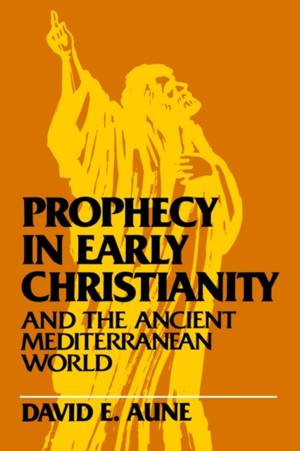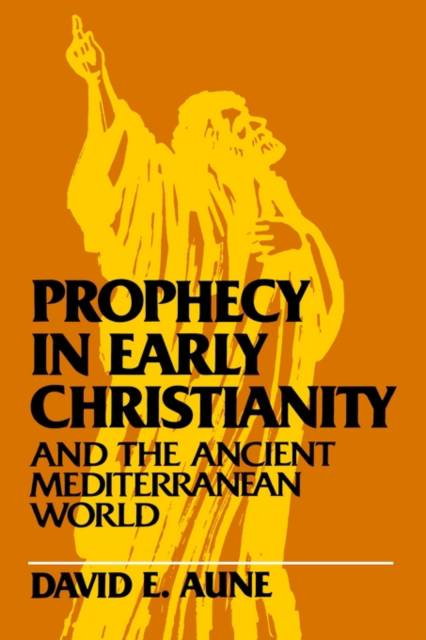
- Afhalen na 1 uur in een winkel met voorraad
- Gratis thuislevering in België vanaf € 30
- Ruim aanbod met 7 miljoen producten
- Afhalen na 1 uur in een winkel met voorraad
- Gratis thuislevering in België vanaf € 30
- Ruim aanbod met 7 miljoen producten
Zoeken
€ 68,95
+ 137 punten
Uitvoering
Omschrijving
This is a print on demand book and is therefore non- returnable. Comparable in scope to Johannes Lindblom's Prophecy in Ancient Israel, this book offers the first comprehensive treatment in English of the place of prophecy in the New Testament period. Because early Christianity was the product of western as well as eastern religious and cultural traditions, David Aune begins by examining the antecedents of early Christian prophecy. He describes Greco-Roman prophecy -- the types of oracles, the people who prophesied, the procedures, and the purpose of prophecy. In examining Israelite-Jewish prophecy, Aune discusses the Old Testament prophets, first-century apocalyptic literature, eschatological prophecy, John the Baptist, and Qumran. Having thus set the background in detail, Aune examines the character of early Christian prophecy, discussing the early Christian and modern conceptions of Jesus as prophet, and analyzing every known Christian prophetic speech from Paul to the middle of the second century A.D. Aune attributes the eventual decline of prophecy to the institutionalization of Christianity, in which the functions of teachers, pastors, elders, and deacons replaced the essentially similar functions of prophets.
Specificaties
Betrokkenen
- Auteur(s):
- Uitgeverij:
Inhoud
- Aantal bladzijden:
- 534
- Taal:
- Engels
Eigenschappen
- Productcode (EAN):
- 9780802806352
- Verschijningsdatum:
- 1/11/1991
- Uitvoering:
- Paperback
- Formaat:
- Trade paperback (VS)
- Afmetingen:
- 142 mm x 236 mm
- Gewicht:
- 757 g

Alleen bij Standaard Boekhandel
+ 137 punten op je klantenkaart van Standaard Boekhandel
Beoordelingen
We publiceren alleen reviews die voldoen aan de voorwaarden voor reviews. Bekijk onze voorwaarden voor reviews.











